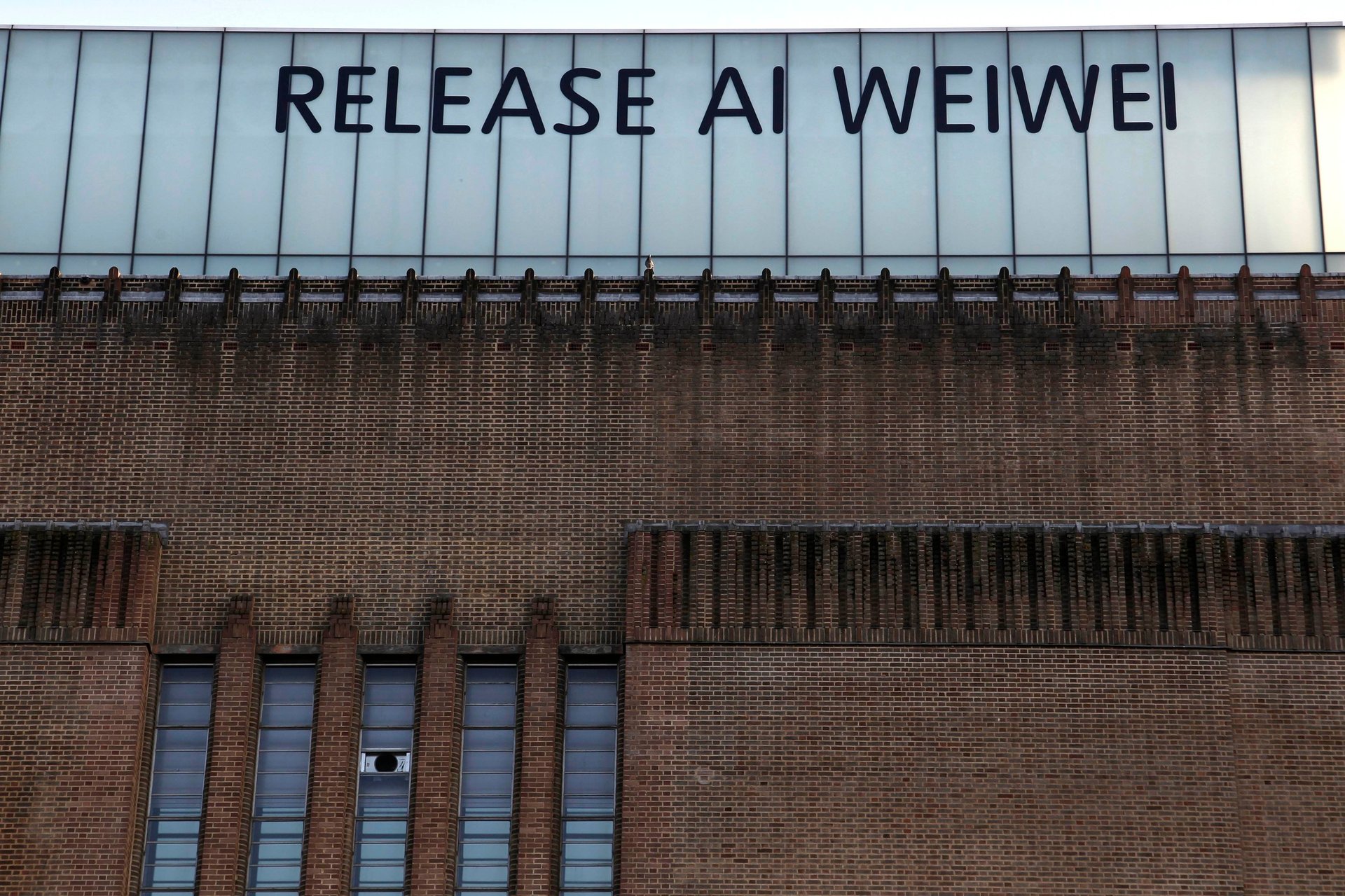Ai Weiwei has suddenly been granted the British visa that was denied to him
The controversial Chinese artist, Ai Weiwei, has been granted a six-month visa to Britain—a sharp and sudden reversal of a decision by UK authorities to deny him an extended visa earlier this week. UK home secretary Theresa May has now intervened—and she also apologized.


The controversial Chinese artist, Ai Weiwei, has been granted a six-month visa to Britain—a sharp and sudden reversal of a decision by UK authorities to deny him an extended visa earlier this week. UK home secretary Theresa May has now intervened—and she also apologized.
Ai has a show coming up at London’s Royal Academy in September, but immigration officials had refused him the six-month business visa he requested to come and install the show because of allegations that he had lied on his application form. The authority instead said that—making “an exception”—it issued Ai with a visa for 20 days. The decision was widely publicized after Ai posted the letter on Instagram:
The original letter from the visa section of the British Embassy in Beijing that Ai posted says that he had been refused the six-month visa because he failed to disclose relevant information about criminal convictions in China. The letter says:
It is a matter of public record that you have previously received a criminal conviction in China, and you have not declared this.
But Ai says he has never been convicted of a crime in China. The artist posted a response in which he said he “has never been charged or convicted of a crime” in China. He was detained without charge for 81 days in 2011—and only just got his passport back from that incident. In 2010, he received a fine for tax evasion as part of a civil case, which Ai says was politically motivated.

Ai’s post had said that he “attempted to clarify this claim with the UK Visas and Immigration Department and the British Embassy in Beijing over several telephone conversations, but the representatives insisted on the accuracy of their sources and refused to admit any misjudgment.”
Many in the UK will be looking forward to his attendance of the autumn show. The public has already pledged £55,000 ($86,000) to a Kickstarter campaign aimed at crowdfunding an installation of eight huge tree sculptures at the exhibition of the Chinese dissident artist’s work.